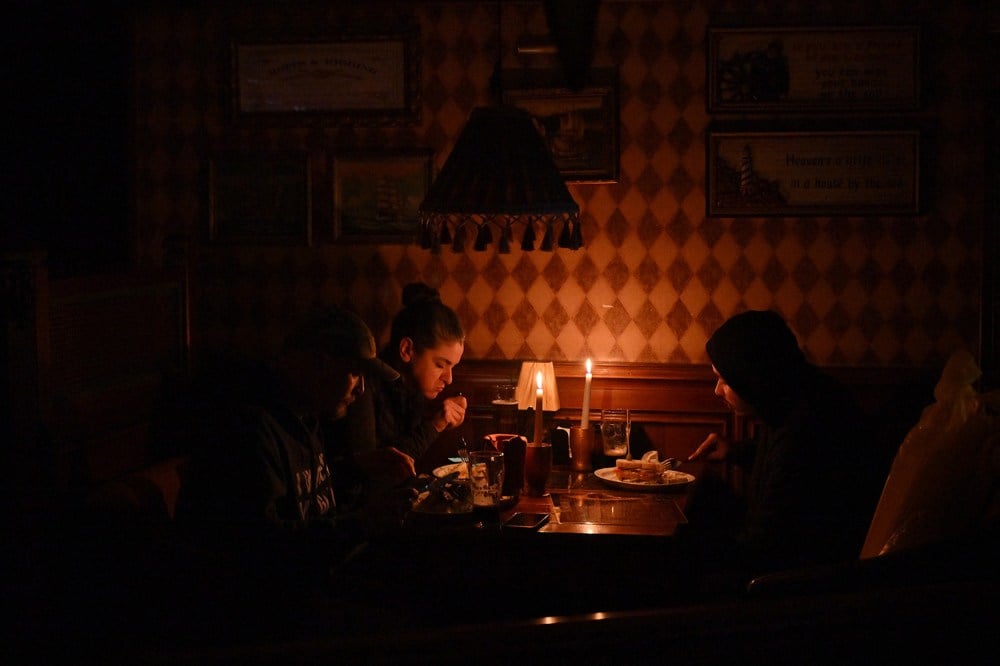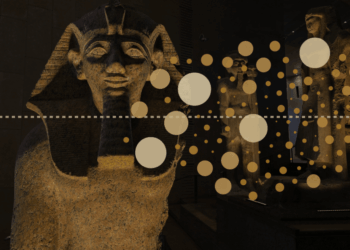Why do Russians do the things they do? Why, specifically, do they commit atrocities and reject democracy? It’s a question pondered by many terrific thinkers, writers, activists, analysts, diplomats, and so on. I have spent too much time on it myself.
In 2025, after more than three years of war and occupation in Ukraine, a much better question is this one: Why do Ukrainians resist Russia so fiercely?
Many of the answers can be found in Olia Hercules’s wonderful new memoir, Strong Roots, which examines Ukraine’s recent history through the prism of her relatives’ experiences.
Hercules is a celebrated, London-based chef and native of the Russian-occupied Kherson region, and food plays a central role in Strong Roots. It’s not a culinary history, however, but a story focused on sensation—the bright, vibrant feel of specific places, points in time, rich tastes, lists of ingredients that read like poetry. The details of her prose are dizzying, from the “fractal patterns” of famous Ukrainian sunflowers to “thunder scratching its belly” against the factory buildings of Ukraine, which has both a “natural beauty” and is an “industrial behemoth,” she writes.

The central theme of Strong Roots is life itself, the desire to live and persist, which stands in stark contrast of the Russian state’s celebration of glorious death and Russia’s apocalyptic, hysterical insistence that the world must bow to it, or else die in a burst of nuclear fire. (As a foreign policy analyst, I maintain that this is a bluff, but one that tells you something terrifying about Russia itself.)
Ukrainians, as Hercules will show you, are simply not like Russians when it comes to their politics and the ideology that drives said politics. They are too in love with life, even as Ukrainian lives continue to be snuffed out and maimed by Russia’s creaking war machine.
In recounting the history of her family, Hercules paints a vivid picture of repressions and deportations, of human beings bashed against the rocks of history on the whims of whatever psychopath, from Nicolas II to Stalin to Putin, was in control in Moscow.
The memoir is a litany of tragedies, but it is never bitter. As Hercules tells the story of her maternal grandmother, Liusia, she states, “if she was given a chance to live her whole life again, and if there was no other way but to repeat it exactly as it was, she would do it. She would live her life once more, she would endure the horrors again, if only she also had the chance to live through all the good moments, too. She loved life so fiercely.”

Liusia and her family suffered forced exile and poverty, the mass famine of the Holodomor, and the terror of Stalinism. But she didn’t allow it to darken her heart, or to sour her hearty cooking—real Ukrainian cuisine, not the bland gruel imposed by the Soviets. As Hercules notes, the Soviet Union stripped local cuisine of its flair and taste across the board, with strictly imposed rules for all ingredients, including seasoning, and a joyless approach to meeting one’s nutritional needs that bordered on punishment.
As a native of Ukraine myself, I found Hercules’s journey through her family history to be so familiar that it flattened me. It’s not just the history of what Stalin did then, and what Putin is doing today, it’s both the raw grief and the joy that accompany the narrative.
Like Hercules, I am haunted by nightmares and sleep paralysis demons today, as Russia’s war continues to rage on. I tell people that I would like to die already. I am tired. Living thousands of miles away from my native land, under a peaceful Western sky, I am overwhelmed with survivor’s guilt.
But, also like Hercules, I am hopeful in an angry way. It’s a hopefulness borne out of love for family and friends, our quaint traditions, our loud dinner parties. Nobody really parties like Ukrainians, in my experience.
Ukraine is a big place, home to many different kinds of people. I am originally from Kyiv and haven’t done much hanging out in the Kherson region during peacetime; my knowledge of it comes from my late father’s memories of the region, where he sometimes traveled for work, and his love for its local watermelons. He insisted, loudly and repeatedly, that it was a beautiful part of the country that the Soviets trampled with their idiotic policies—like the destruction of natural habitats—and their habit of making people live in cheap, ugly buildings.
Seeing my father’s words echoed in Strong Roots made me recognize the thread of indignation that unites Ukrainian families from different parts of the country. Hercules devotes an ample amount of space for explaining how Russification of the region under the Soviets drove vibrant local traditions to the periphery of existence and destroyed the landscape.
-

A flooded kitchen.
-

A volunteer serves food from a giant pot onto many plates.
Putin, of course, is now trying to finish the job. His likely destruction of the Kakhovka dam, recounted in the book, is just one example of the terrible nihilism that radiates from Moscow. How does one face a deranged enemy like that? With weapons, of course, but also with remembering who you are, and that you are fighting from what love.
Strong Roots is a beautiful exercise in preservation. The prose is a patchwork of pain and furious, enduring affection; whether she’s describing ingredients for a borsch made for her displaced parents or delving into how the Ukrainian language treats the word “home,” Hercules is poignant and vulnerable and defiant all at once.
“Why did I grow up believing Ukrainian literature was tedious and peripheral, but Russian literature was profound and globally important?” Hercules asks at one point—a question that many of us in the diaspora have also asked, with shame and confusion in our hearts. “Why did we use Ukrainian language in a pejorative way?”
Generations, the book makes clear, were not only taught but forced to do so. The wages of disobedience were violent death at worst and exile to the margins of society at best. The same is being done by Russians in Ukraine’s occupied territories today.
The book asks, how dare they? And also: Who cares about them, when we are who we are? Pour another round and tell another story. Face the darkness and remain yourself as much as you can.
There is a lesson here for anyone and everyone who contemplates dark times. These times call for extreme bravery, yes, but also extreme grounding, a grip of history as tough as any roots. As Hercules’s brother Sasha, who volunteered for the war effort immediately after the full-scale invasion, told her, “If we miss this moment, we will never close this circle.”
The post ‘Strong Roots’ Turns Cooking Into Resistance appeared first on Foreign Policy.





